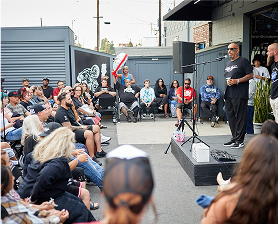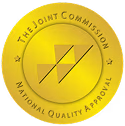Rehab Center in Anaheim – Your Trusted Addiction Treatment Facility
DISCOVER YOUR PURPOSE
Welcome to
Lift Off Recovery
Lift Off Recovery is a premier addiction treatment center in Anaheim. We provide a full continuum of care—from medically supervised detox to residential rehab, PHP, IOP, and aftercare—to help you achieve lasting sobriety. Our holistic, evidence-based approach treats the physical, emotional, and spiritual aspects of addiction.
Detox & Residential Treatment Programs
Medical Detox: Receive 24/7 care for safe detoxification from substances.
Residential Rehab: Engage in an immersive program (typically 20–30 days) that includes daily therapy, holistic activities, and family involvement.
Structured Environment: Benefit from a trigger-free setting designed to rebuild your health.
Alcohol Addiction
At Lift Off Recovery, our addiction treatment program for alcohol is designed to improve your health through a structured process that includes detox, intensive rehab, and ongoing withdrawal treatment. We serve clients in Anaheim, Orange County, and Fullerton with evidence-based methods.

Cocaine Addiction
Our addiction treatment for cocaine focuses on evidence-based rehab to improve mental and physical health. We serve clients in Anaheim, Orange County, and Fullerton with individualized care that targets both dependency and withdrawal symptoms.

Heroin Addiction
Our heroin addiction treatment program offers scientifically proven methods to improve health through detox, inpatient rehab, and long-term withdrawal treatment. We serve Anaheim, Orange County, and Fullerton with clear, structured recovery pathways

Opioid Addiction
Our opioid addiction treatment program is engineered to improve physical and mental health through a step-by-step process. We offer medically supervised detox, intensive rehab, and continuous withdrawal treatment for clients in Anaheim, Orange County, and Fullerton.

Xanax Addiction
Our program for Xanax addiction treatment improves mental and physical health by addressing both dependency and withdrawal symptoms through detox, rehab, and ongoing withdrawal treatment. We serve clients in Anaheim, Orange County, and Fullerton with personalized care.

Fentanyl Addiction
Our fentanyl addiction treatment program focuses on improving overall health by guiding patients through a medically supervised detox, intensive rehab, and effective withdrawal treatment. We serve clients in Anaheim, Orange County, and Fullerton with clear, evidence-based methods

Partial Hospitalization & Intensive Outpatient Programs
Partial Hospitalization Program (PHP): Experience 5–6 hours of day treatment with a structured schedule.
Intensive Outpatient Program (IOP): Attend 3–5 sessions per week that allow you to balance recovery with everyday responsibilities.
Our Evidence-Based Therapies
Cognitive Behavioral Therapy (CBT): Change negative thought patterns.
Dialectical Behavior Therapy (DBT): Manage intense emotions.
Trauma-Informed Therapy: Heal underlying trauma safely.
Medication-Assisted Treatment (MAT): Use FDA-approved medications when needed.
Holistic Therapies: Incorporate mindfulness, yoga, art, and music to support recovery.


Rediscovering joy, connection, & purpose
Residential Accommodations: Enjoy private or semi-private rooms designed for comfort.
Therapy Spaces: Access modern, calming group and individual therapy rooms.
Common Areas: Relax in communal spaces with natural light and outdoor access.
Anaheim & Orange County: Benefit from over 40 local support meetings, community resources, and recovery events.
Regional Support: We collaborate with providers in Fullerton and surrounding areas for comprehensive care.
Confidential and Discreet: Our facility respects your privacy and maintains strict confidentiality.
Everyone deserves the space to imagine a better life & the support to make it real.
Through compassion, community, and a commitment to real change, we walk alongside every person ready to rise, heal, and create a future they’re proud of.




A Community That Lifts You Higher
Healing doesn’t happen in isolation—it thrives in community.
Our commitment to creating connection extends far beyond the walls of treatment. Every week, our clients, team, alumni, and local residents come together to participate in meaningful, sober events that celebrate life, growth, and belonging.
Magic House Sundays
Join us every Sunday for Magic House—a music-filled, open-door recovery event that feels more like a celebration than a meeting.
.png)
Sober Events & Awareness
Get involved in events that matter—like our fentanyl awareness days, sober community gatherings, and the annual Recovery Summit.

Recovery That Moves With You While You Grow
Be part of weekly our outings like beach volleyball, park days, & sober holiday parties to keep life fun and full.

Client Testimonials
Begin Your Recovery Journey
Take Action Today
Contact our admissions team to schedule an evaluation. We verify insurance benefits and often begin treatment within 24–48 hours. Our compassionate staff will guide you through every step from detox to aftercare.

Your Path to a Brighter Future
Lift Off Recovery is more than a rehab center; we are a community dedicated to your long-term success. Embrace a future where you:
Regain control of your life.
Rebuild healthy relationships.
Rediscover passions and purpose.
Enjoy a fulfilling, sober lifestyle in Anaheim, supported by resources from Orange County and Fullerton.
Join the many individuals who have transformed their lives at Lift Off Recovery. Your new beginning starts here.
Insurance Providers We Work With
.png)

.png)

.png)
.png)

%20(1).avif)
%20(1).avif)
.avif)



.png)


.png)
.png)
.png)
.png)
.png)
.png)
.png)
.png)
.png)
.png)
.png)
.png)
.png)
.png)
.png)
.png)




.png)
